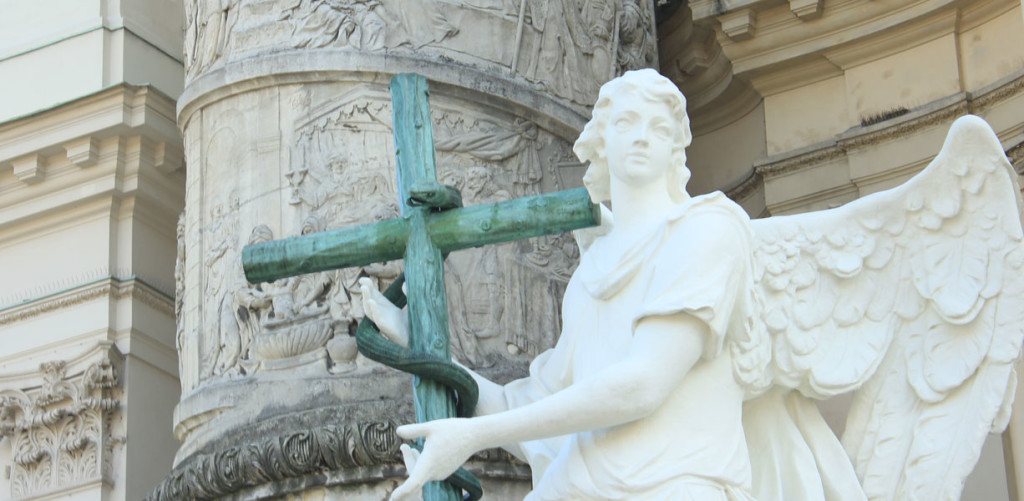Religion in Austria

Christianity, especially Roman Catholicism is still the predominant religion in Austria and has a long and intense tradition. Beautiful Churches, Shrines, Monasteries and Cathedrals, like Vienna’s famous landmark the St. Stephen’s Cathedral, can be found all over Austria and are usually located in the center of each town. More than that Vienna has even been the capitol of the Holy Roman Empire for centuries. Thus the interest in catholic religion has been in decline since the 1950s when 90% of Austria’s population was baptized. Since then the number of Catholics has lowered to 63% of the population. On the other hand with an increasing number of migrants, especially from Turkey and the Balkans, more than a tenth of the total population is either Muslim (7%) or Eastern Orthodox (6%). Though the second biggest Creed is “none” or “other” religion with 22%, this is mainly due to criticism to the conservative ways of the Catholic Church and the Austrian Church Tax.
According to Austrian law (“law on the religious education of children”), every young person over the age of fourteen can freely choose his or her religion. Religious education in Austrian schools is not restricted to the Roman Catholic confession: children belonging to smaller churches and religious communities receive religions education in their own confession. Their teachers are paid by the State.
Catholicism
With two thirds of the population with Roman Catholic confession, being Christian is considered “normal” in Austria. The influence of the Church in the everyday life of the Austrian population is declining and people are seeking spiritual guidance in other religions. For that reason many people leave the Church when they reach adulthood due to the Austrian Church Tax, which makes out 1,1% of the total annual salary. Worldwide the church has undergone criticism for their conservative stance on topics like emancipation or homosexuality, which even increases the wish for young people to leave the institution. Unlike the everyday life religion still plays a big role in the Austrian tradition. Whilst Christmas and Eastern are celebrated worldwide, there are several other Christian holidays especially in Austria:
- Epiphany – January 6th
- Easter Monday
- Ascension Day – 40 days after Easter
- Whit-Monday – 7th Monday after Easter
- Corpus Christi – Thursday on the week after Whit-Monday
- Assumption Day – August 15th, Assumption of Mary
- All Saints – November 1st (for pupils also November 2nd)
- Immaculate Conception Day – December 8th
- Christmas Day – December 25th
- St Stephens Day – December 26th
The following Churches provide sermons in English and German language:
St Stephen’s Cathedral
Stephansplatz 3, 1010 Vienna
www.stephanskirche.at
Michaelerkirche
Habsburgergasse 12, 1010 Vienna
www.michaelerkirche.at
Ruprechtskirche
Ruprechtsplatz 1, 1010 Vienna
www.ruprechtskirche.at
Kirche zur Heiligsten Dreifaltigkeit (Wotruba Kirche)
Rysergasse, 1230 Vienna
www.georgenberg.at
Protestantism
There are two forms of Protestantism in Austria, Lutherans follow the Augsburg Confession (A.C.) and Reformist follow the Helvetic Confession (H.B.). The combined membership represents 4% of the Austrian population, with the major part belonging to the Lutheran Church.
A list of all Protestant Churches can be found here.
English services are offered in the Christ Church Vienna in the third district and the United Methodist Church of Vienna in the 15th district.
Islam
Islam, as the second largest in Austria is practiced by nearly 8% of the Viennese population, must of them belonging to the Sunni denomination. Austria was the first western country to recognize Muslims as a religious community with the Anerkennungesetz (“Act of Recognition”) in 1912. The Islamic culture has deeply rooted in Vienna for centuries at first through the war with Turkey in the late 18th century and later with Bosnia-Herzegovina being a part of the K&K Empire.
To combat the radical Islam in Austria the Islamgesetz was introduced in 2015 illegalizing foreign sponsoring of mosques and paying salaries of imams and furthermore regulating the versions of the Koran, which are used in Austria. The Islamic Center Mosque was built in the 1975 and is located in the 21st district in Vienna. It has a 32m high minaret and attached to the mosque are facilities for the study and practice of Islamic culture.
A full list of mosques and Islamic Prayer Centers can be found here.
Judaism
The flourishing Jewish chapter in Vienna’s history has found a sinister ending, with the annexation in 1938. Of Vienna’s 94 synagogues and temples only the Jewish City Temple survived entirely. Nowadays the Jewish Community has about 7000 members in Vienna and has found its home in the second district. The Central Synagogue is situated in Seitenstettengasse in the First District. A complete list of synagogues and houses of prayer can be found here.
Buddhism
About 10,000 Austrians are practicing Buddhists with the majority being of Austrian Nationality. Like in most multi-cultural cities there are different Buddhist schools, which are represented by different groups. Vienna is the center of the Austrian Buddhist Church and is home to most Buddhist centers.
